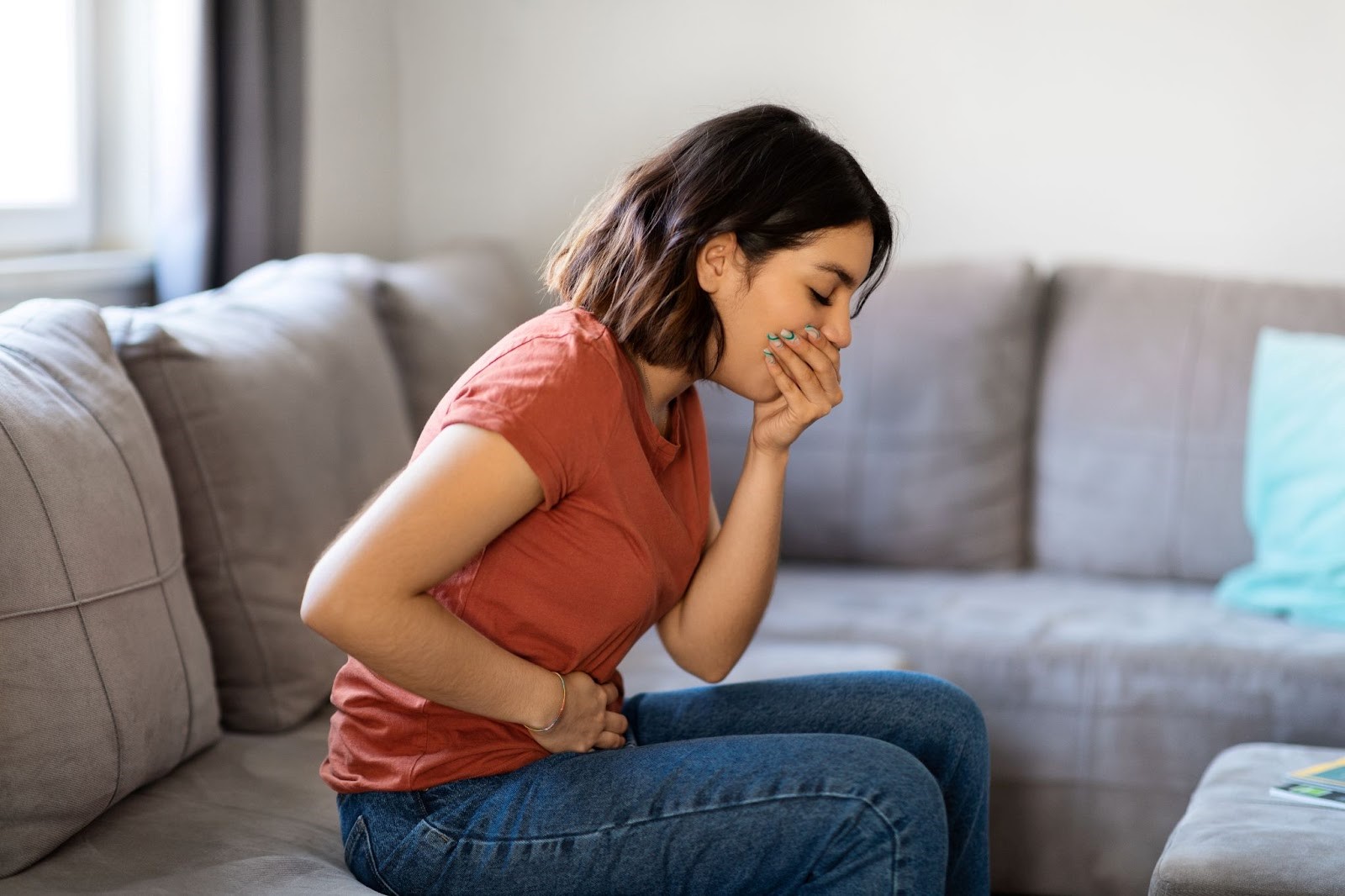
Gastroenteritis Explained: Symptoms, Causes & Treatment
June 20, 2025
Gastroenteritis, often known as stomach flu, is a common health issue typically caused by a viral or bacterial infection. Gastroenteritis is an intestinal infection with symptoms like diarrhea, vomiting, abdominal cramps, and nausea. Though the condition can be easily treated with home remedies, in some cases, it may require medical intervention.
This piece will explain gastroenteritis, its causes, symptoms, and treatment options. Let’s dive in!
What is Gastroenteritis?
Gastroenteritis is an inflammation of the stomach, often known as stomach flu. It’s caused in the intestines by various infections from viruses, bacteria, or parasites. Gastrointestinal diseases can cause symptoms such as nausea, vomiting, watery diarrhea, abdominal pain, and sometimes fever.
Most often, the stomach flu is diagnosed as food poisoning due to similarities in symptoms, but there are key differences between stomach flu and food poisoning that can help in accurate diagnosis. Although stomach flu can last longer and present with more severe symptoms, understanding the distinction is important for proper treatment.
Types of Gastroenteritis
Types of gastroenteritis can be classified based on their symptoms. Understanding the types of gastroenteritis helps in determining the best treatment approach.
Viral Gastroenteritis
The most common types of gastroenteritis include infections caused by:
- Norovirus: highly contagious and often spreads in closed environments
- Rotavirus: common in infants and young children
- Adenovirus and Astrovirus: less common
Bacterial Gastroenteritis
When bacteria enter the digestive system, typically through contaminated food or water, it can lead to bacterial gastroenteritis. Common bacteria that can cause this condition include:
- Salmonella
- E. coli
- Campylobacter
- Shigella
Parasitic Gastroenteritis
Parasitic gastroenteritis is a type of inflammation in the stomach. It’s a less common condition, but it may occur due to poor sanitation. Symptoms of parasitic gastroenteritis include:
- Diarrhea (may be watery and prolonged)
- Stomach cramps and abdominal pain
- Nausea and vomiting
- Dehydration
- Headache
- Loss of appetite
Gastroenteritis Symptoms and Signs
Gastroenteritis symptoms usually appear within 1–3 days after exposure to the infection. The symptoms can last anywhere from 1 to 10 days. The onset of gastroenteritis symptoms can vary depending on the cause and source of infection, but the most common signs include:
- Watery diarrhea
- Nausea and vomiting
- Stomach cramps and pain
- Heartburn or acid reflux
- Fever and chills
- Headache and muscle aches
- Loss of appetite
- Severe dehydration
- Sunken eyes
- Rapid heartbeat
- Dizziness
What Causes Gastroenteritis?
While typically short-lived, the symptoms of gastroenteritis can be uncomfortable. From viral infection to unsanitary food, gastroenteritis’s causes vary depending on hygiene, diet, and immune health.
Viral Infections
The most common cause of gastroenteritis worldwide is viral infections, particularly norovirus and rotavirus. Viral infections can spread easily through close contact, contaminated surfaces, or food and water.
Bacterial Infections
Often linked to food poisoning, gastroenteritis is a bacterial infection caused by E. coli or Salmonella. It can be caused by eating undercooked food, unwashed vegetables, or drinking contaminated water.
Parasitic Infections
These are more prevalent in areas with poor sanitation. They can affect people who consume contaminated food or water.
Chemical Toxins and Medications
In rare cases, gastroenteritis can also be caused by chemical toxins and medications. Some cases are caused by:
- Certain medications (antibiotics)
- Ingestion of toxic substances
- Food allergies
Treatment Options for Gastroenteritis
Depending on the severity of the condition, the patient’s age, treatment, and overall health, gastroenteritis treatment options include:
Hydration
Dehydration is the most significant risk of gastroenteritis. If not addressed, constant fluid and electrolyte loss in children and the elderly can quickly become dangerous.
- Oral Rehydration Solutions (ORS)
- Clear Fluids
- Avoid Sugary or Caffeinated Drinks
- Intravenous Fluids (IV)
Dietary Changes
Your digestive system needs rest during recovery. Eating high-fat foods can aggravate symptoms and delay healing. Avoid caffeine, fried food, spicy food, and raw vegetables. Recommended foods to eat during the treatment include:
- Bananas, rice, applesauce, toast
- Boiled potatoes, plain pasta, steamed carrots
- Soft fruits like peeled apples
- Probiotic-rich foods (like plain yogurt), once symptoms improve
Rest and Recovery
Fatigue and weakness are common symptoms.
- Avoid strenuous activity
- Stay home to prevent spreading the infection
- Eat healthy and rest to recover faster
When to See a Doctor
While gastroenteritis symptoms often resolve independently, certain severe conditions may require instant medical attention. Early treatment can prevent complications and speed up recovery. Visit a gastroenterologist when:
- Persistent vomiting or diarrhea (more than 1 day)
- Blood in stool or vomit
- High fever (above 102°F or 39°C)
Conclusion
Gastroenteritis is a common but manageable medical condition. Though the condition runs its course in a few days, recognizing the symptoms early and treating them on time is necessary to avoid serious complications. It’s recommended to stay hydrated and follow appropriate treatment to recover faster. Understanding the causes of gastroenteritis—and how to prevent them—can reduce your risk and help you respond quickly when symptoms strike.
FAQs
Is gastroenteritis contagious?
Yes. Viral gastroenteritis can be contagious, spreading through contaminated food, surfaces, and direct contact. Proper hand hygiene and sanitation are essential to prevent transmission.
How long does gastroenteritis last?
Most cases last 1 to 3 days, although some bacterial infections may last up to 10 days. The duration also depends on the patient’s immune status and the cause of the illness.
What to eat after gastroenteritis?
Start with bland, easy-to-digest foods such as:
- Bananas
- Rice
- Applesauce
- Toast
- Plain potatoes
